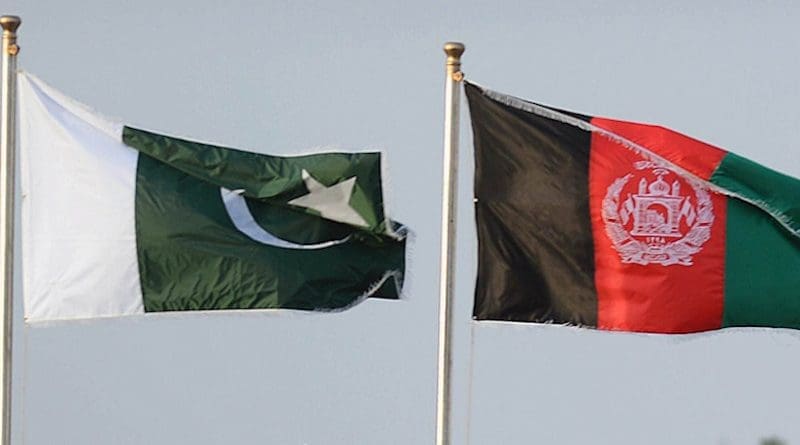Detention Of Afghan Citizens In Pakistan: Balancing Security And Humanitarian Concerns – OpEd
By Shah Khalid
The detention of Afghan citizens in Pakistan has garnered significant attention in recent years. This complex issue revolves around a range of factors, including illegal stay and entry, involvement in criminal activities, and the expiration of crucial documents such as Proof of Registration (PoR) and Afghanistan Citizen Cards (ACC). While Pakistan has been a generous host to Afghan refugees for decades, it is essential to address the challenges posed by the detention of Afghan citizens within the context of responsible refugee policies. There are certain reasons behind Afghan citizen detentions, the documentation status of these individuals, and international comparisons. This article highlights the unique residency patterns of Afghan refugees in Pakistan and Pakistan’s history of hosting them, ultimately emphasizing the need to balance security concerns with humanitarian considerations.
Reasons for Afghan Citizen Detention
A. Illegal Stay and Entry
One of the primary reasons for the detention of Afghan citizens in Pakistan is their illegal stay or entry into the country. Many Afghans have sought refuge in Pakistan due to the precarious security and economic conditions in their home country. However, some individuals enter Pakistan without proper documentation or overstay their visas, leading to their detention. Ensuring that refugees adhere to legal immigration processes is vital for national security.
B. Involvement in Crimes
Another significant factor contributing to Afghan citizen detentions is their involvement in criminal activities. It is essential to recognize that while the majority of Afghan refugees are law-abiding, a minority has been engaged in illicit activities. These activities can range from smuggling narcotics and banned goods to other forms of organized crime. Dealing with individuals involved in criminal enterprises poses unique challenges for law enforcement agencies.
Documentation Status
A. Expired PoR and ACC Cards
The expiration of PoR (Proof of Registration) and ACC (Afghanistan Citizen Card) cards has added to the complexity of the issue. PoR cards were initially issued to Afghan refugees as proof of their legal status in Pakistan. However, many of these cards have expired over time. Similarly, ACC cards, which were introduced by the Afghan government in 2017, have also faced expiration issues. Expired documentation puts Afghan citizens at risk of detention and deportation.
B. Release as a Goodwill Gesture
Pakistan has taken steps to address this issue by releasing detained Afghan citizens as a goodwill gesture. This demonstrates Pakistan’s commitment to maintaining positive relations with Afghanistan and fostering an environment of trust. The process of releasing detainees is ongoing, showcasing Pakistan’s willingness to balance its security concerns with humanitarian considerations.
International Comparison
A. Global Approach to Illegal Immigrants
To contextualize the detention of Afghan citizens, it is essential to understand the global approach to dealing with illegal immigrants. Across the world, countries employ similar policies, which include detaining and deporting those who have entered their territories without proper documentation or authorization. This approach aims to maintain control over immigration processes and ensure national security.
B. Detentions in Other Countries
Detentions of Afghan immigrants are not unique to Pakistan. In July 2023, the United States detained over 100 Afghan citizens for their irregular entry into the country. Likewise, in October 2022, Delhi police detained over 200 Afghan women, children, and men due to security concerns. These examples underscore the universality of the issue and the need for comprehensive immigration policies.
Afghan Refugees in Pakistan
A. Unique Residency Patterns
One distinguishing aspect of Afghan refugees in Pakistan is their residency patterns. Approximately 68.8% of Afghan refugees have chosen to live in urban or semi-urban areas, while the remaining 31.2% are spread across 54 different regions in Pakistan. This unique choice impacts their livelihoods, as urban areas often provide more economic opportunities.
B. Pakistan’s Hosting History
Pakistan has a long history of hosting Afghan refugees and has been an unparalleled host in the region. However, this history comes with significant responsibilities. While Pakistan is committed to hosting Afghan refugees, it also needs to ensure national security, making it necessary to address the challenges posed by illegal immigration.
Conclusion
The detention of Afghan citizens in Pakistan is a multifaceted issue that requires a delicate balance between security and humanitarian considerations. The reasons behind these detentions, including illegal stay, entry, and involvement in criminal activities, highlight the need for responsible immigration policies. Moreover, the expiration of essential documentation complicates matters, but Pakistan’s efforts to release detainees as a goodwill gesture demonstrate its commitment to fostering positive relations with Afghanistan.
It is essential to view this issue within the broader context of global immigration policies, where detentions of illegal immigrants are not uncommon. Pakistan’s unique hosting history and the residency patterns of Afghan refugees further emphasize the need to address this issue comprehensively. By striking a balance between security and humanitarian concerns, Pakistan can continue to be a generous host while safeguarding its national interests. Ultimately, responsible refugee policies are essential to managing this complex challenge effectively.

